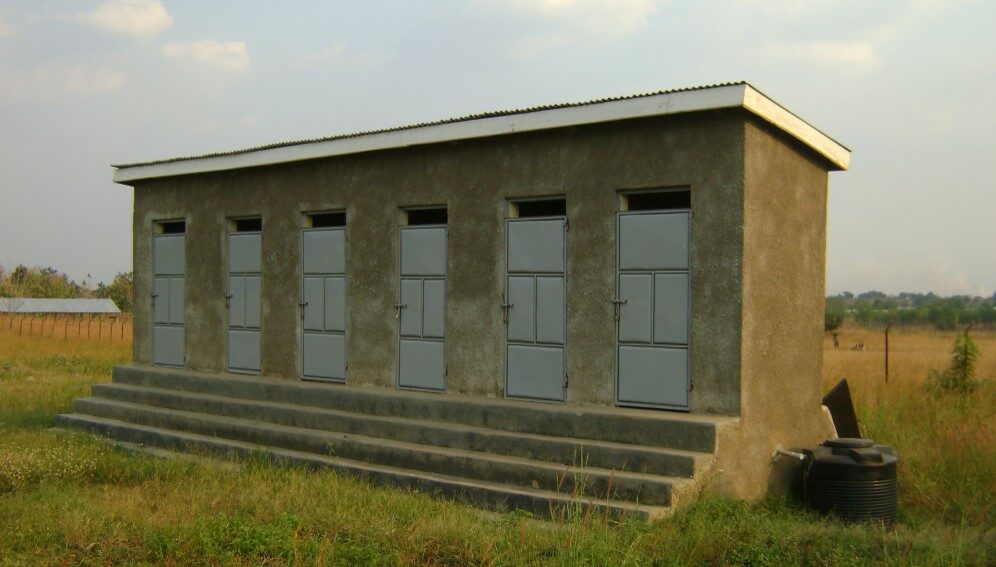07/10/22
Africa grapples with ending open defecation

By: Chioma Basilia
Send to a friend
The details you provide on this page will not be used to send unsolicited email, and will not be sold to a 3rd party. See privacy policy.
[LAGOS] Africa’s quest to achieve the Sustainable Development Goal target of ending open defecation by 2030 could be in jeopardy as many countries lack access to basic water services, public health experts say.
Only 27 per cent of Sub-Saharan Africa’s population has access to basic sanitation and 220 million people across the continent still defecate outside, rather than using a toilet, according to the World Bank.
Yaw Attah Arhin, chairman of Ghana’s Coalition of NGOs in the Water and Sanitation Sector, tells SciDev.Net that Africa’s slow progress in tackling this practice has put the UN’s target to end it out of sight.
“A few African countries may meet the target but Africa as a continent is likely to miss it,” he says.
“Most of our schools, markets and health facilities do not have adequate toilet facilities.”
Chizoma Opara, ‘Clean Nigeria: Use the Toilet’ campaign
Arhin says the Economic Community of West African States and the African Union may have to declare a continental emergency and demand that countries end open defecation by a certain deadline.
Chizoma Opara, national coordinator of the ‘Clean Nigeria: Use the Toilet’ campaign, tells SciDev.Net that Nigeria developed a national roadmap to end open defecation in the country by 2025. The strategy document if achieved aims to get SDGs for Water, Sanitation and Hygiene, WASH target on track, she said.
According to a Joint Monitoring Programme report by the WHO and UNICEF on access to basic water services, more than a quarter (27 per cent) of health care facilities in Sub-Saharan Africa lack alcohol-based hand rub or water and soap at points of care and two-thirds (63 per cent) lack handwashing facilities with water and soap at toilets.
In Nigeria, almost a quarter of the population lack access to basic water supplies, with 48 million practising open defecation, according to UNICEF’s Water Sanitation and Hygiene National Outcome Routine Mapping (WASHNORM).
The 2021 WASHNORM survey, which tracked access to water, sanitation and hygiene (WASH) services in households and institutions including public places was published in June this year ahead of World Toilet Day on 19 November.
The ‘Clean Nigeria: Use the Toilet’ campaign that began in 2019 to end open defecation has not yielded the desired result because of Nigeria’s increasing population and lack of political will, experts say.
“A key reason is that most Nigerians are not yet aware of the need to end open defecation, especially the rural populace,” says UNICEF WASH specialist Bioye Ogunjiobi.
“Several vulnerable families in Nigeria truly cannot afford to buy a toilet, and some need to be supported with soft loans to build toilets. There is little attention by the government to construction of WASH facilities.”
The campaign aimed to ensure that all public places, including schools, hotels, fuel stations, places of worship, marketplaces, hospitals and offices had accessible toilets within their premises.
Opara tells SciDev.Net that out of 774 local government areas in Nigeria, only 84 in 12 states are open defecation free.

“We are still hooked at the state and local government levels because there is no buy-in — that is why we are still where we are — no political will to be able to drive this campaign,” Opara explains.
“For a local government to be open defecation free, every household within that locality must have a toilet. Most of our schools, markets and health facilities do not have adequate toilet facilities.”
The WASHNORM report found that less than half of all schools and only six per cent of health care facilities in Nigeria have access to basic WASH services.
“Researchers have revealed that diarrhoea is the second largest killer of children in Nigeria, and more than 50 per cent of diarrhoea cases are caused by open defecation,” Ogunjiobi explains. “The government of Nigeria and the people spend a lot of money on treatment of diseases, most of which are preventable by ending open defecation.”
Ogunjiobi recommends private sector engagement to promote the campaign and says all government ministries need to prioritise it.
“State government needs to see it as a development priority and invest in supporting all open defecation campaign intervention in their states,” he adds.
Open defecation remains a public health concern across Sub-Sahara Africa, especially in rural areas.
Arhin tells SciDev.Net that open defecation is still a problem in Ghana, with 18 per cent of Ghanaians practising it.
“The practice is widespread in the northern regions of Ghana with Savannah Region having an open defecation rate of 68 per cent with Northern, North East, Upper East and Upper West [regions] having rates more than 50 per cent,” he explains.
Rosemary Audu, director of research at the Nigeria Institute of Medical Research, explains that open defecation causes numerous health problems.



“Open defecation remains a major cause of water contamination, spreading of communicable diseases leading to immediate public health effects and linked to psychological stressors,” she explains.
To stop the practice, residential and public places should have toilets, she adds.
This piece was produced by SciDev.Net’s Sub-Saharan Africa English desk.













